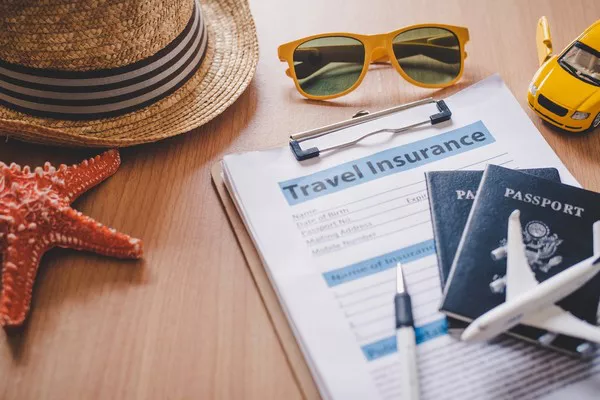Traveling is an exciting experience, but it also comes with its share of risks and uncertainties. One of the ways to mitigate these risks is by purchasing travel insurance. Many travelers wonder if they can buy travel insurance after booking their flight, and the answer is a resounding yes. However, there are several important considerations to keep in mind. This article will delve into the details of purchasing travel insurance post-booking, including eligibility, timing, coverage limitations, policy options, benefits of early purchase, the purchasing process, cost implications, claims and reimbursement, and travel credit cards with insurance benefits.
Eligibility for Post-Booking Insurance Purchase
Yes, you can purchase travel insurance after booking your flight. This flexibility allows travelers to protect their investment even if they did not think of buying insurance at the time of booking. However, it’s crucial to act promptly to ensure you have the widest range of options and benefits available. Many insurers allow you to buy a policy up to the day before departure, but waiting too long can limit your options and the scope of coverage.
see also: How much is comprehensive travel insurance?
Timing Considerations
The best time to buy travel insurance is as soon as you book your trip. While you can still purchase insurance after booking, some benefits may be unavailable if you delay. For example, ‘Cancel For Any Reason’ (CFAR) coverage, a popular add-on that offers the flexibility to cancel your trip for reasons not covered by standard policies, typically must be purchased within a certain period after your initial trip deposit, usually within 14 to 21 days. Additionally, buying early ensures that you are covered for any unexpected events that may occur between the time of booking and departure.
Coverage Limitations
When purchasing travel insurance after booking, be aware of certain limitations and exclusions that might apply:
Pre-Existing Conditions: Most standard travel insurance policies exclude coverage for pre-existing medical conditions. Some insurers offer waivers for pre-existing conditions, but these typically need to be purchased within a short window (10-21 days) after the initial trip payment.
Foreseeable Events: Insurance generally does not cover events that are deemed foreseeable at the time of purchase. For example, if a hurricane is already named and tracking toward your destination, buying insurance at that point may not cover hurricane-related cancellations or interruptions.
Reduced Coverage Windows: Delaying the purchase of travel insurance can reduce the coverage window for benefits like trip cancellation, meaning there is a shorter period between the purchase of insurance and the departure date for which coverage applies.
Policy Options
After booking your flight, you have a variety of travel insurance policies to choose from, ranging from basic to comprehensive coverage:
Basic Travel Insurance: Typically covers trip cancellations, trip interruptions, lost baggage, and emergency medical expenses. This type of policy is suitable for those looking for essential protection at a lower cost.
Comprehensive Travel Insurance: Includes all the benefits of basic coverage plus additional protections such as CFAR, trip delay, missed connections, and more extensive medical coverage. Comprehensive plans are ideal for travelers seeking the highest level of protection.
Specialized Policies: There are also niche policies tailored for specific needs, such as adventure travel insurance for extreme sports, business travel insurance, or policies for cruises.
Benefits of Early Purchase
Purchasing travel insurance soon after booking your trip comes with several advantages:
Longer Coverage Window: You benefit from a longer period during which you are protected against trip cancellation risks.
Pre-Existing Condition Waivers: By buying early, you may qualify for waivers that cover pre-existing medical conditions.
Broader Coverage Options: Early purchase ensures access to add-ons like CFAR, which might not be available if you wait.
Peace of Mind: Securing travel insurance early provides peace of mind knowing that you are protected against a wide range of potential issues that could arise before and during your trip.
Process of Purchasing Insurance Post-Booking
Here’s a step-by-step guide to purchasing travel insurance after booking your flight:
Research and Compare: Start by researching different travel insurance providers and comparing their policies. Look for reputable companies with positive reviews and comprehensive coverage options.
Assess Your Needs: Determine what type of coverage you need based on your destination, trip activities, and personal health. Consider factors like medical coverage, trip cancellation, baggage loss, and emergency evacuation.
Get Quotes: Use online tools to get quotes from multiple insurers. Ensure you input accurate trip details to get precise estimates.
Check for Exclusions: Carefully review the policy exclusions and limitations, especially regarding pre-existing conditions and foreseeable events.
Select a Policy: Choose the policy that best meets your needs and budget. Ensure it provides the coverage you require.
Purchase Online or Via Agent: Most insurers allow you to purchase policies online, but you can also buy through an insurance agent if you prefer personalized assistance.
Provide Trip Details: You’ll need to provide details such as your trip dates, destination, total trip cost, and personal information.
Review and Confirm: Review the policy details one last time before confirming your purchase. Make sure all the information is accurate.
Cost Implications
The cost of travel insurance can vary depending on several factors, including:
Timing: While the price of travel insurance generally does not increase significantly if purchased after booking, waiting too long can limit access to certain coverages, which could indirectly affect the overall value of the policy.
Coverage Level: Basic policies are cheaper than comprehensive ones. Adding extras like CFAR or adventure sports coverage will increase the cost.
Trip Cost and Duration: More expensive and longer trips usually include higher insurance premiums.
Traveler’s Age: Older travelers often face higher premiums due to increased risk.
In general, purchasing travel insurance soon after booking ensures you get the best value for your money with the most extensive coverage.
Claims and Reimbursement
The claims process for travel insurance typically involves the following steps:
File a Claim: Contact your insurer as soon as possible after the event that triggers the claim. Most insurers have a claims department you can reach via phone or online.
Provide Documentation: You will need to submit documentation to support your claim. This may include receipts, medical reports, police reports (for theft or loss), and proof of trip costs.
Review Process: The insurer will review your claim and the provided documentation. This process can take several days to weeks, depending on the complexity of the claim.
Receive Reimbursement: If your claim is approved, the insurer will reimburse you for the covered expenses, either via check or direct deposit.
Appeals: If your claim is denied, you have the right to appeal the decision. Provide additional documentation or clarification as needed.
see also:How much does travel insurance cost for 2 weeks?
Travel Credit Cards with Insurance Benefits
Before purchasing additional travel insurance, check if your travel credit card offers complimentary travel insurance benefits. Many premium travel cards include:
Trip Cancellation/Interruption Insurance: Covers non-refundable travel expenses if your trip is canceled or interrupted due to covered reasons.
Lost or Delayed Baggage Insurance: Provides reimbursement for lost, damaged, or delayed baggage.
Travel Accident Insurance: Offers coverage for accidents that occur while traveling.
Emergency Medical and Dental Coverage: Covers medical and dental emergencies during your trip.
Rental Car Insurance: Provides coverage for rental car damages.
These benefits can significantly reduce the need for additional travel insurance, saving you money. However, always read the fine print to understand the extent of the coverage and any exclusions or limitations.
Conclusion
In conclusion, purchasing travel insurance after booking your flight is not only possible but also a wise decision to protect your travel investment. While the best practice is to buy insurance as soon as you book your trip, there are still valuable options available if you delay. By understanding the eligibility, timing considerations, coverage limitations, policy options, and benefits of early purchase, you can make an informed decision that ensures comprehensive protection for your travels. Whether you buy insurance immediately or later, having the right coverage provides peace of mind and financial security, allowing you to enjoy your trip with confidence.
FAQs About Travel Insurance Timing and Coverage
1. Can I buy travel insurance after my departure?
A: Generally, travel insurance should be purchased before your departure to ensure full coverage. However, some insurance companies offer limited policies that can be bought after departure. These policies might cover specific situations like emergency medical expenses and trip interruption, but they typically won’t cover pre-existing conditions or trip cancellations. It’s best to check with the insurance provider about the specific terms and availability of post-departure coverage.
2. Does travel insurance cover booking new flights?
Travel insurance may cover the cost of booking new flights if your original flight is canceled or significantly delayed for a covered reason. These reasons might include severe weather, mechanical issues, or strikes. Policies often cover the cost of rebooking a flight or provide a reimbursement for additional expenses incurred due to the delay or cancellation. Always review the terms of your policy to understand the extent of coverage for flight rebookings.
3. How late can you add travel insurance?
You can usually add travel insurance up until the day before your departure. However, for optimal coverage, including protection for pre-existing conditions and trip cancellation, it is recommended to purchase insurance as soon as possible after booking your trip. Some benefits, like Cancel For Any Reason (CFAR) coverage, may only be available if purchased within a certain period (often 14-21 days) after making your initial trip deposit.
4. How long before traveling should you get travel insurance?
It’s advisable to purchase travel insurance immediately after booking your trip. This ensures you receive the maximum benefits, such as coverage for pre-existing conditions and trip cancellation. Early purchase can provide comprehensive protection from the outset, covering unexpected events that may occur before your departure date. If you delay, you might miss out on key benefits and coverage options.
You Might Be Interested In




















